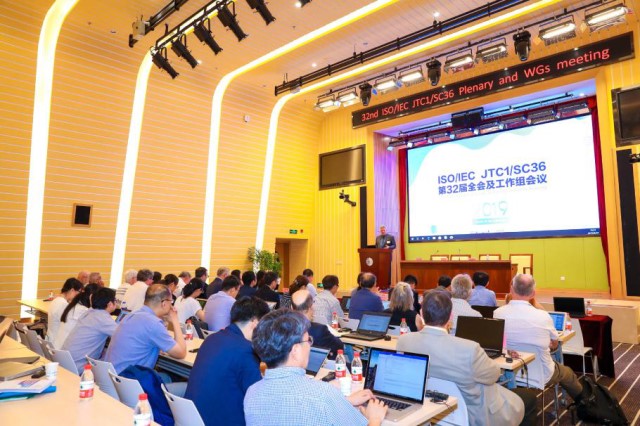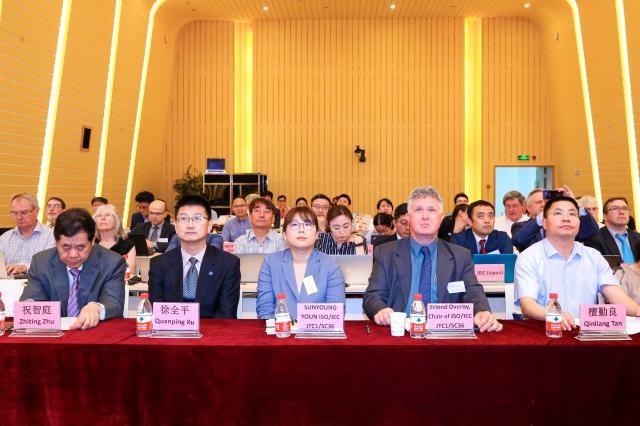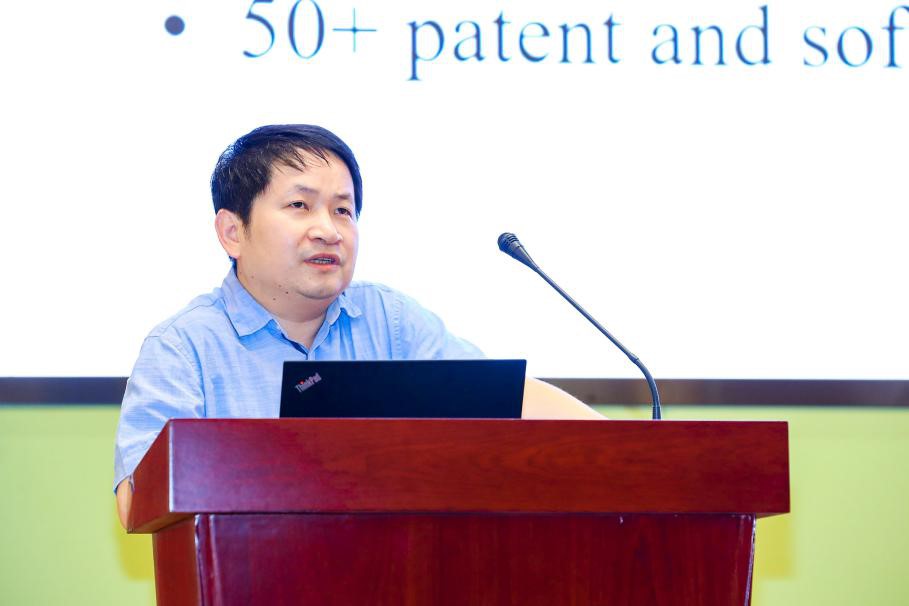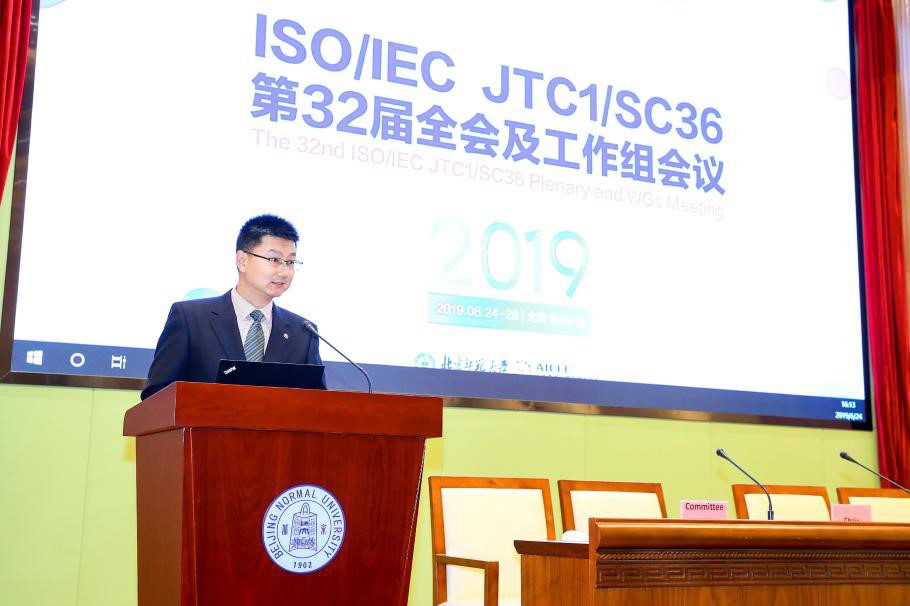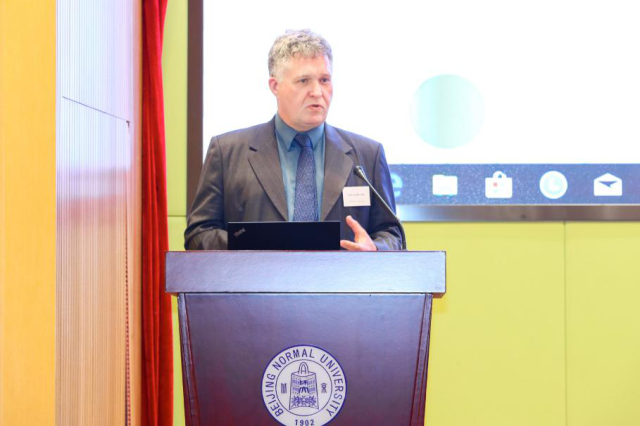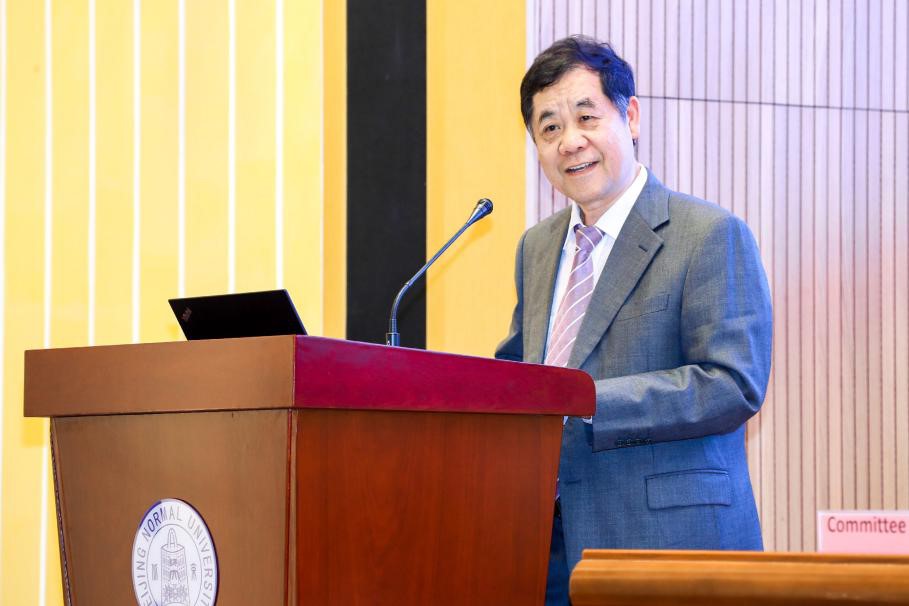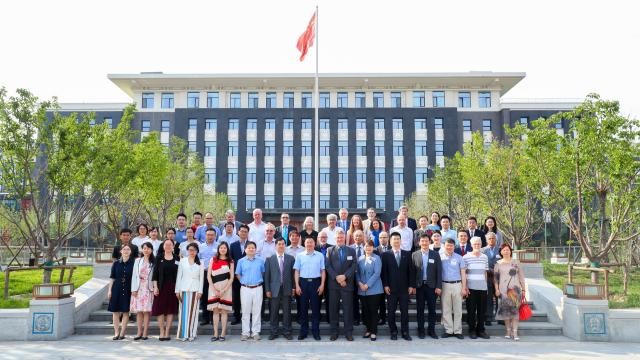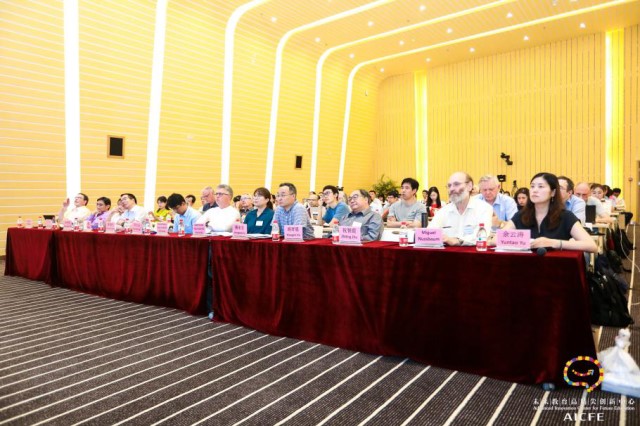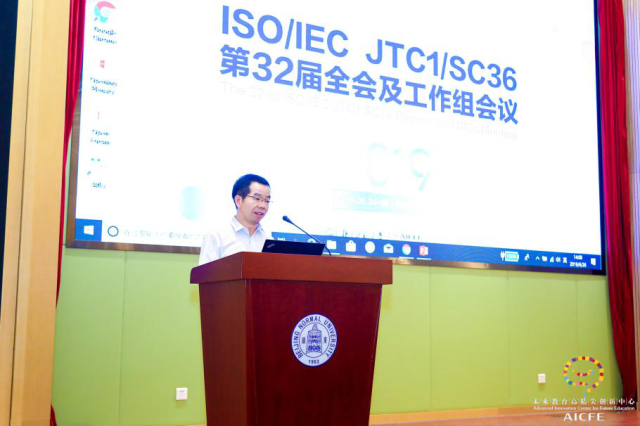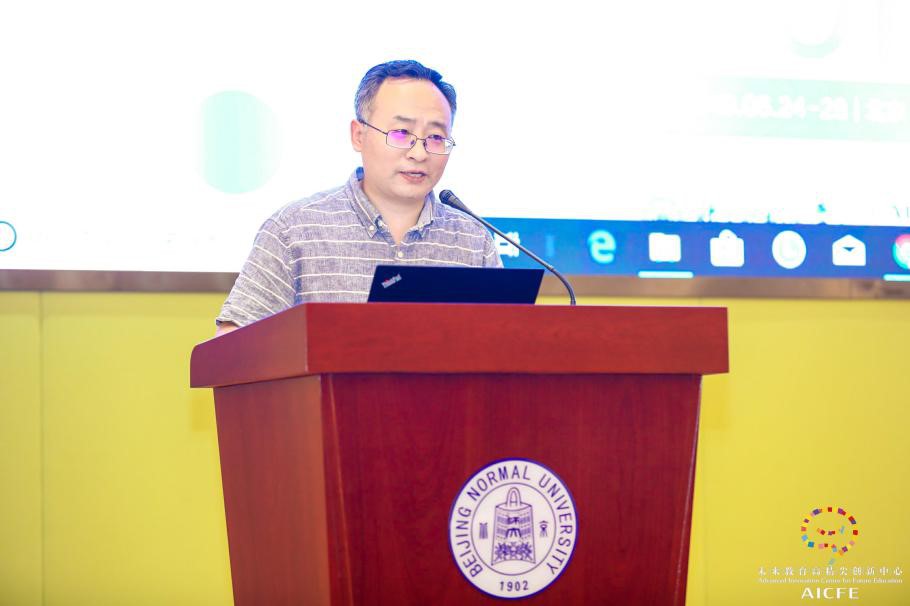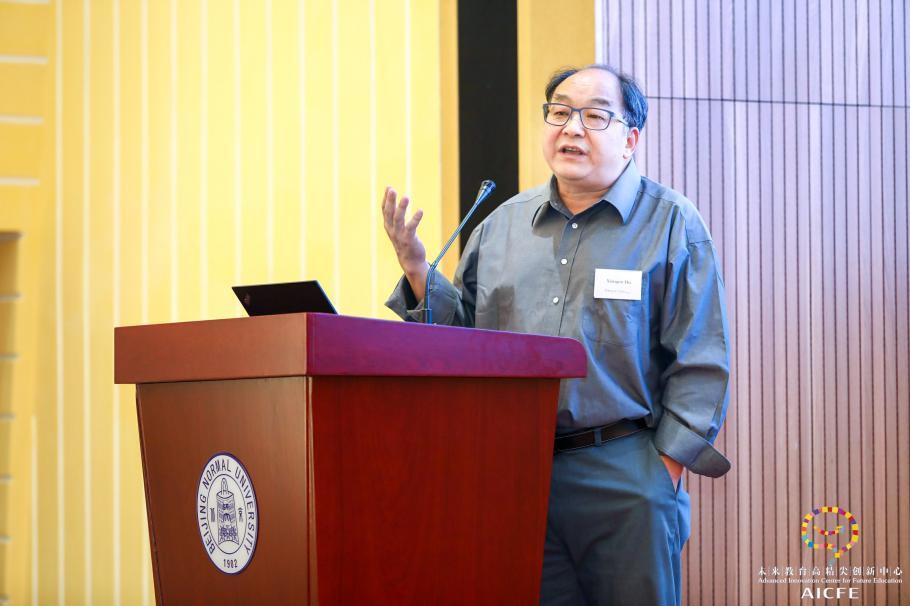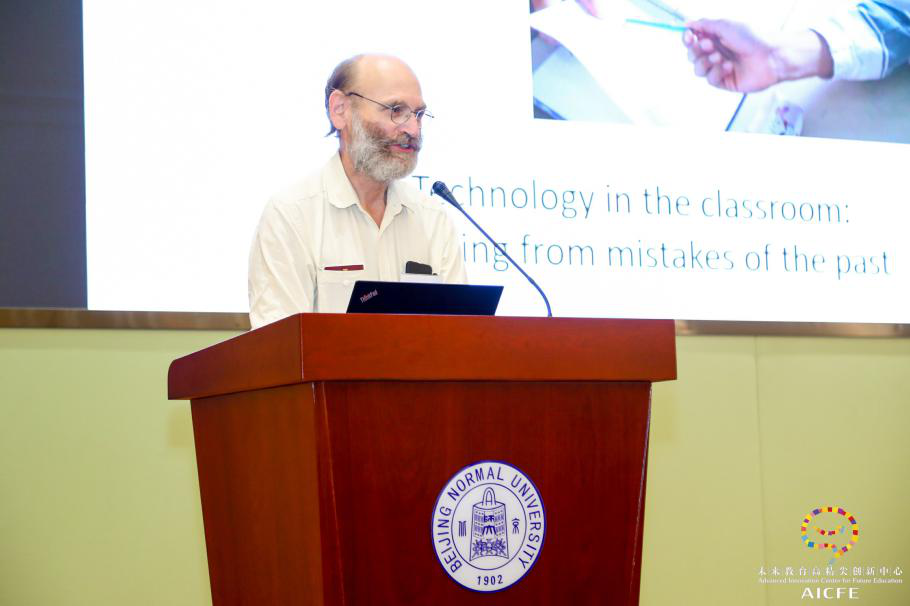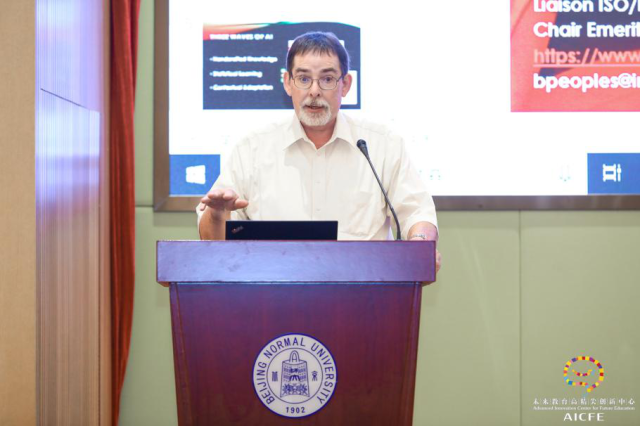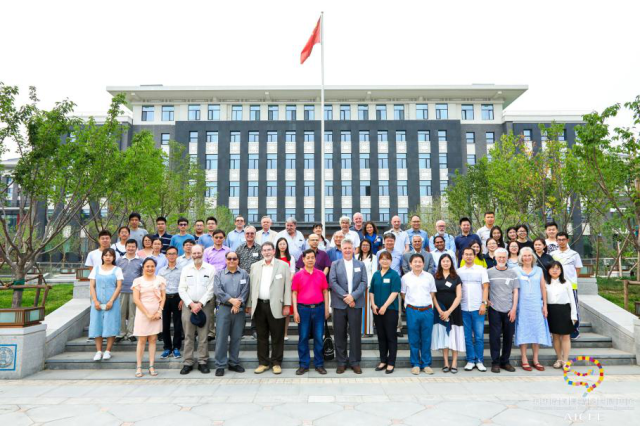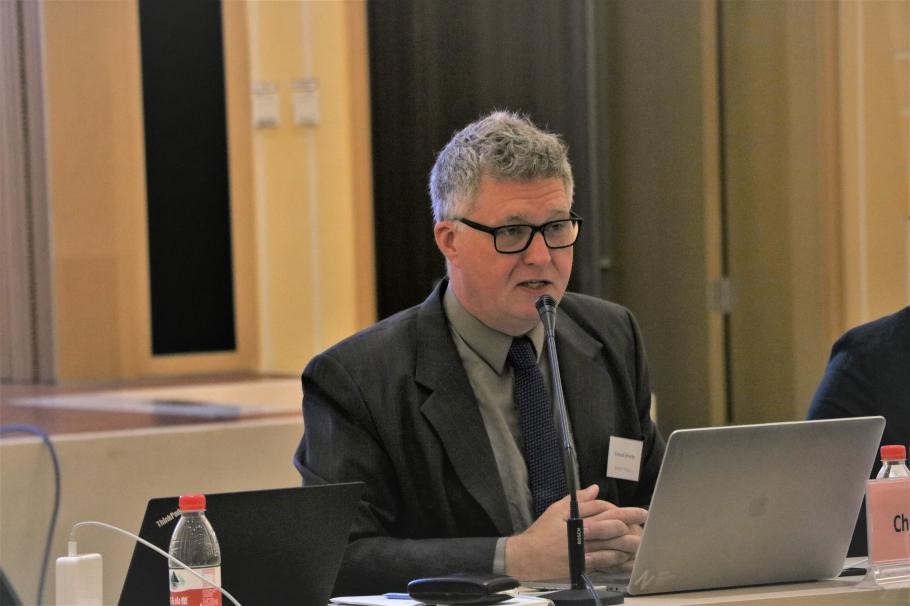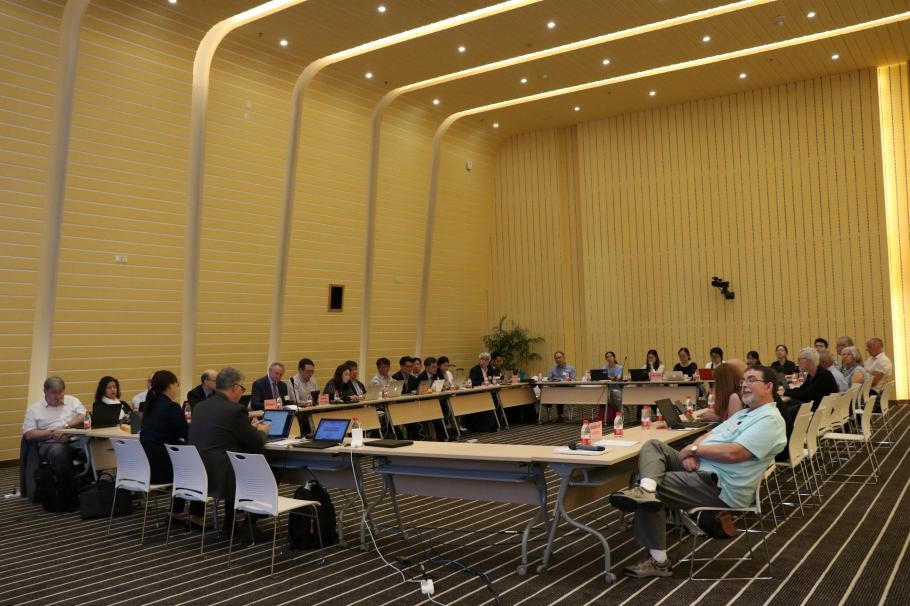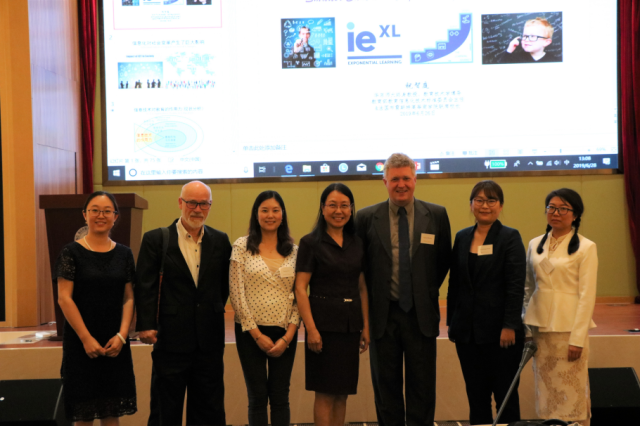The 32nd ISO/IEC JTC1/SC36 Plenary and WGs Meeting Ends in Success
The 32nd ISO/IEC JTC1/SC36 Plenary and WGs Meeting is held in Beijing from June 24 to June 28, 2019 at Beijing Normal University (Changping Campus). This year, around fifty SC36 experts from Australia, Canada, China, France, India, Japan, Korea, Norway, Russian, United States of America attend the meeting. This year's meeting is co-organized by the Advanced Innovation Center for Future Education and China Electronics Standardization Institute, and CELTSC (China E-Learning Technology Standardization Committee). They have had in-depth discussions on the topics of information technology standardization in the areas of learning, education and training.
The ISO/IEC JTC1/SC36 is a sub-organization of the International Standard Organization (ISO) which focus on information technology for learning, education and training. Its scope is to realize the standardization in learning, education and training area to support individuals, groups or organizations and to enable interoperability and reusability of resources and tools. Up to now, it has published 40 ISO standards including the ISO/IEC 19788 (Metadata for Learning Resource), ISO/IEC 19778 (Collaborative Technology) and ISO/IEC TS 29140 (Nomadicity and mobile technologies). In addition, 20 ISO standards are still under development including the ISO/IEC 23126 (Ubiquitous Learning Resource Organization and Description Framework) and ISO/IEC FDIS 19479 (Learner Mobility Achievement Information). These ISO standards may improve the efficiency of learning, education and training. The ISO/IEC JTC 1/SC36 annual meeting provides a platform for researcher and experts in learning, education and training areas to discuss about the ideas and progresses for promoting the standardization of educational facilitators.
On the afternoon of 24 June, several important figures attended the meeting, including Erlend Overby, Chair of ISO/IEC JTC1/SC36, Sunyoung Youn, Committee Manager of ISO/IEC JTC1/SC36, Deputy Director Qinliang Tan from Department of Science and Technology, Ministry of Education of the People’s Republic of China, Quanping Xu, Deputy Director of IEC Liaison Office, Department of Standards Innovative Management, State Administration for Market Regulation of the People's Republic of China, Yadong Wu, Deputy Director of China Electronics Standardization Institute, Prof. Zhiting Zhu, Chair of CELTSC (China E-Learning Technology Standardization Committee), Prof. Li Zheng, Secretary of CELTSC (China E-Learning Technology Standardization Committee), Prof. Shengquan Yu, Executive Director of Advanced Innovation Center for Future Education at Beijing Normal University, Yuntao Yu from Information Technology Research Center, China Electronics Standardization Institute.
Picture 1 The Opening Ceremony
Picture 2 Speakers and Important Figures
Professor Shengquan Yu gave a welcoming speech. First of all, he thanked the guests from all countries who came to the meeting. Then he introduced Beijing Normal University. He pointed out that Beijing Normal University has been focusing on integrating cognition, psychology and computer science to leverage their subject advantages to discover the theories in teaching and learning, exploring ways and means of using information technology to promote learning and teaching. As a core convener of the meeting, he intends to promote the development of two international standards related to learning, education and training. In terms of national standards. As core drafters, he along with others has drafted six national information technology standards, and have also participated in the development of more than ten relevant international and domestic standards, covering online course construction, virtual learning environment, online courses, and learning.
Picture 3 Professor Shengquan Yu
At the Opening Ceremony, Deputy Director Quanping Xu stated that this is the third SC36 plenary meeting hosted in China. It shows the confidence of working groups in China and this provides a good opportunity for China to further integrate its information technology standards with international standards. China is willing to continue to strengthen exchanges and cooperation with ISO/IEC around the world, assuming reasonable responsibilities and obligations, and make greater contributions to the development of the International Standardization Organization.
Picture 4 Deputy Director Quanping Xu
Erldend Overby, Chair of ISO/IEC JTC1/SC36, expressed his gratitude to China for hosting the plenary session. He explained the importance of information technology standardization to the development of human life. The SC36 organization has been committed to education and expected to bring greater opportunities for the development of learning, education and training.
Picture 5 Erldend Overby, Chair of ISO/IEC JTC1/SC36
Deputy Director Qinliang Tan from Department of Science and Technology, Ministry of Education of the People's Republic of China talked about the outstanding achievements of China in the past 20 years in the education informatization. China has accumulated a lot of experience in the process of exploration and practice, and achieved great breakthroughs. It has brought new opportunities and new challenges. He said that in promoting international standards for education informatization and educational information technology, China adheres to an open strategy and an international vision. It is hoped that through exchanges and cooperation with various countries, China will continue to promote the globalization and fair development of education informationization. China will always actively support the work of international standards for education informatization. At the same time, He expressed the expectation that the efficiency of teaching and learning will be continuously improved through the formulation of international standards.

Picture 6 Deputy Director Qinliang Tan
Professor Zhiting Zhu, Chair of CELTSC, pointed out that China E-Learning Technology Standardization Committee has been committed to develop the theory of educational informatization, technology development trends, educational information technology and other related standards, and stressed the responsibility to contribute to ISO/IEC JTC1/SC36. In the future, they wish to offer more valuable work to the development of standards related to education, learning, and training.
Picture 7 Professor Zhiting Zhu
Picture 8 Group Photo
In addition, the Open Forum as an important part of the SC36 meeting was successfully held on the afternoon of June 26. At present, AI is expected to accelerate the realization fair and quality learning, education and training. It breaks the boundaries of knowledge acquisition, analyzes learning patterns and optimizes the learning process, thus improving learning outcomes. On the other hand, the application of artificial intelligence in education is accompanied by concerns about ethics, security and human rights. The theme of this forum is "Future Education in the Age of Artificial Intelligence".
Mr. Dashan Liu, the Deputy Director of Department of Standards Technology Management, State Administration for Market Regulation of the People's Republic of China, Yongbao Fu, the Consultant of Department of Information Technology Application and Software Services, Ministry of Industry and Information Technology of the People's Republic of China, Professor Ronghuai Huang of Beijing Normal University, Professor Zhiting Zhu of East China Normal University, Professor Xiangen Hu of Memphis University, Professor Miguel Nussbaum of Catholic University of Chile, Dr. Bruce E. Peoples, founder and CEO of Innovation, Professor Yu Shengquan YU, Executive Director of Advanced Innovation Center for Future Education, and Associate Professor Yu LU from Beijing Normal University attended the Open Forum.
Picture 9 Meeting
Professor Ronghuai Huang, Director of the National Engineering Laboratory of Cyberlearning and Intelligent Technology, Beijing Normal University, Deputy Director Dashan Liu from Department of Standards Technology Management, State Administration for Market Regulation of the People's Republic of China, and Yongbao Fu researcher from Department of Information Technology Application and Software Services, Ministry of Industry and Information Technology of the People’s Republic of China gave welcome speech respectively.
Professor Ronghuai Huang gave a welcome speech to the guests at home and abroad, and expressed warm welcome and sincere gratitude to the leaders and experts. He then introduced the research institutions of Beijing Normal University in the field of educational technology, such as Advanced Innovation Center for Future Education, Smart Learning Institute, The Joint Laboratory for Mobile Learning Ministry of Education-China Mobile Communications Corporation. In his speech, Professor Huang emphasized that in the era of artificial intelligence, we must form a global working mechanism and research community, and establish international standards to overcome the data gap and promote the informationization of future education.
Picture 10 Professor Ronghuai Huang
Deputy Director Dashan Liu said that the construction and development of educational informatization cannot be separated from the support of standardization work. China attaches great importance to the standardization in the field of education informatization and has achieved considerable results. It hopes to continue to strengthen exchanges with international standards organizations. Cooperation, while taking on more responsibilities and obligations. China will improve the construction of education information standard system, pay attention to the development trends of information technology, learn the application of emerging technologies in learning, education and training, explore potential standardization needs, effectively organize and promote relevant departments to participate in SC36 international meetings, and complete high quality international standard voting, actively promote the mutual transformation of international standards and national standards.

Picture 11 Deputy Director Dashan Liu
Yongbao Fu pointed out that the rapid development and spreading application of information and communication technology has created more favorable conditions for promoting education equity and quality of education. China is trying to explore how to provide citizens with a more open, convenient, fair and effective learning environment in the era of information technology. It is also trying to use AI to break the boundaries of knowledge acquisition and optimize the learning process. Improve learning outcomes while actively thinking about the ethics, safety, and human rights issues that emerge.
Picture 12 Reseacher Yongbao Fu
After the welcome speeches, Professor Zhiting Zhu delivered a keynote speech on "Smart Education Empowered by Exponential Thinking", expounding the connotation and significance of smart education. He pointed out that the development of exponential technology also needs the enlightenment of exponential thinking. He also introduces the innovative practice research and cases of exponential thinking at home and abroad, and analyzes the theoretical basis and practical cases of exponential thinking empowering smart education in a simple way, which provides reference for the research and practice.
Picture 13 Professor Zhiting Zhu
Professor Xiangen Hu gave us a speech “An introduction to General Intelligent Framework for Tutoring (GIFT) ”. He further explained about the general Intelligent Tutoring System framework, prototype system, research team and its supporting organizations. He talked about the urgent needs of individualized learning in the 21st century, which has prompted the attention on human intelligent tutor systems in the engineering and research field.
Picture 14 Professor Xiangen Hu
Prof. Miguel Nussbaum's "Technology in the Classroom: Learning from Mistakes of the Past" speech talks about the innovation of information technology based on education. The learning system should be able to understand the pace of students, and students can learn at their own pace, instead of learning according to the system's preset progress. Therefore, our goal should be to transform from teacher-centered learning to student-centered learning, empowering teachers, transforming the learning process, and teachers should respect the rights of children and allow them to learn at their own pace, while teachers need to have the ability and literacy to introduce technology into classroom teaching, bridging between curriculum and technology. He said that in education, the emphasis should not be on technology, but on teaching methods and teaching content.
Picture 15 Professor Miguel Nussbaum
With the development of AI, AICFE has developed AI-driven robot for education. By integrating self-determination theory and knowledge tracking models, robots can provide a better learning experience and conduct accurate knowledge state assessments to motivate students to learn. Associate Professor Yu Lu talked about the interactive educational robot based on the intelligent learning platform in the "AI-Driven Educational Interactive Robot". The educational robot can solve the individualized problems of learning. In addition, AICFE has developed the AI Tutor for moral education, which mainly uses the case-based reasoning theory to carry out the overall design of the system, collecting successful cases of moral education, and solves the problems with knowledge map.
Picture 16 Associate Professor Yu Lu
Dr. Bruce E. Peoples talks about "Context Is Everything …The Future of Artificial Intelligence for Learning, Education, and Training". Learning, Education, and Training (LET) is not just for humans anymore. With the advent of Artificial Intelligent (AI) based LET solutions such as Adaptive Learning Systems (ALS), AI components are also “entities” with LET needs. Taken together, Human LET (HLET) and AI LET (ALET) form a unique symbiotic relationship fostering advanced Augmented Cognition (AUG COG) paradigms for both the human, and AI components, where both learn from each other.
Picture 17 Dr. Bruce E. Peoples
Picture 18 Group Photo at Changping Campus, Beijing Normal University
This Open Forum explored the future trends of educational information technology and artificial intelligence applications, and demonstrated the international and domestic cutting edge research and developments in this field, providing new ideas and advices for follow-up research in related fields. It also helped to promote the continuous progress and deeper development of education in the field of information technology.
After five days of discussions, the conference ended on June 28, 2019, at Beijing Normal University, Changping Campus. The Closing Plenary Session was chaired by ISO/IEC JTC1/SC36 Chair Erlend Overby and Committee Manager Sunyoung Youn.
Picture 18 SC36 Chairman Erlend Overby
At the Closing Plenary Session, the convener of each working group summarized the progress of the work , the existing problems and key plans within the group.
Picture 19 Closing Ceremony
Subsequently, SC36 thanked the organizers, conveners, participants, secretaries and chairmen of the meeting. The representatives of France introduced the meeting next year. The guests expressed their expectation for the future international standards work.
Picture 20 Meeting Photo
This meeting has played an important role in promoting relevant standards in the field of education. In the futureu, China will further participate in international standardization work based on the current achievements, and actively contribute to the development of China's standards. Internationally, we will continue to enhance China's substantive participation and leadership in the international standardization of educational information technology.

